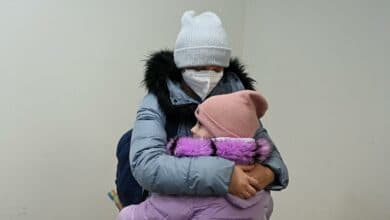Myanmar ‘democratic government’ pledges to recognize Rohingya

Bangkok, Jun 4 (EFE).- The so-called National Unity Government, made up of pro-democracy politicians and activists opposed to the military junta, has pledged to recognize the citizenship of the persecuted Rohingya community in Myanmar.
The “democratic government,” whose members are in hiding, said the future Myanmar constitution should base nationality on being born in the country or having Myanmar parents and pledged to speed up the repatriation of Rohingya refugees in Bangladesh.
“The Rohingya have the right to citizenship under laws that will comply with fundamental human rights standards and democratic federal principles,” the alternative government said in a statement.
The dissident group also pledged to amend or repeal rules such as the Citizenship Act of 1989, which links full nationality to ethnic identity and has been used to deny citizenship to the majority of Rohingya.
UN Special Rapporteur on Human Rights in Myanmar Tom Andrews welcomed the decision of the Government of National Unity, which he considered a good sign for the future of the country.
“The recognition of the Rohingya as citizens of Myanmar speaks volumes for the unity that `[it] wants to promote in the country,” Andrews said in a statement.
Tun Khin, president of the Myanmar Rohingya Organization UK NGO, also applauded the initiative, but said the democratic government should recognize the “genocide” against the Rohingya minority and support the processes against the Myanmar Army in international courts.
The Rohingya, a majority Muslim community, have suffered discrimination and the violation of their rights, including movement rights, for decades in Myanmar, where more than 120,000 of them have been living in displacement camps since outbreaks of sectarian violence in 2012.
In 2016 and 2017, attacks by a militant Rohingya group sparked a brutal campaign by the Myanmar military, who committed killings, rapes and burned entire villages, prompting an exodus of more than 800,000 members of this minority to Bangladesh.
For these operations, the army has been accused of crimes against humanity and genocide, among other crimes, before international justice.
The army, led by coupmaker Gen. Min Aung Hlaing, took power on Feb. 1 after denouncing alleged electoral fraud in November’s elections, although these were validated by international observers. EFE
grc/lds





